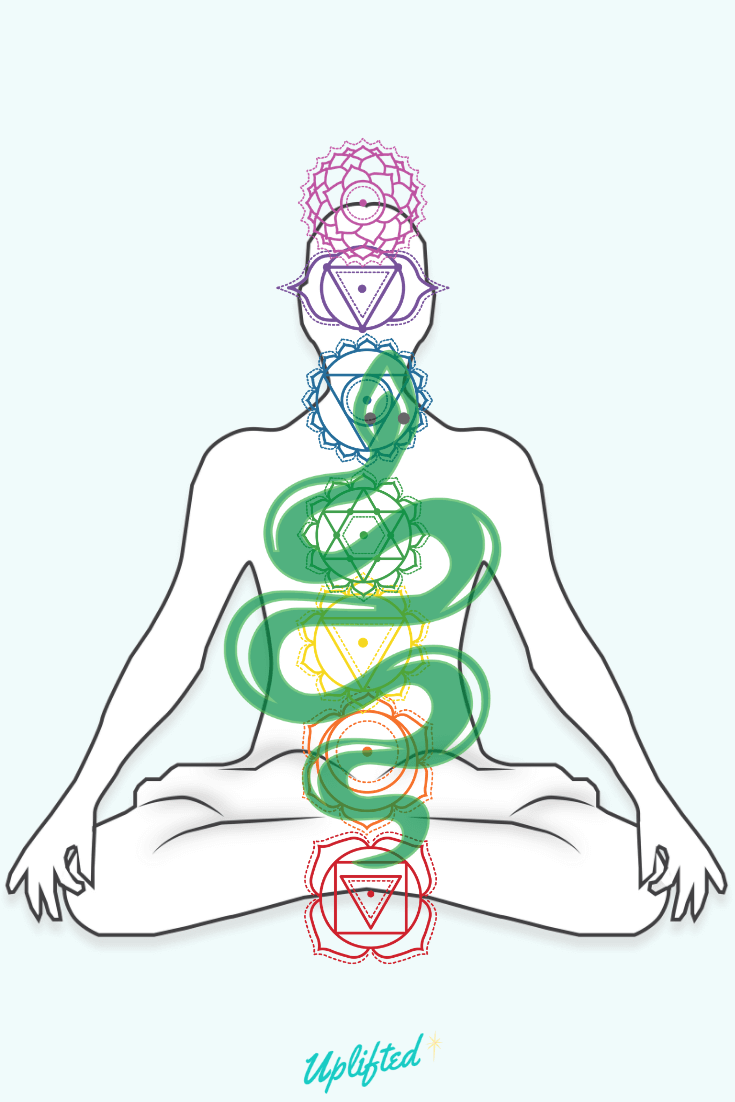
Spiritual psychosis refers to a mental state in which intense spiritual experiences become overwhelming, distorted, or detached from reality—leading to confusion, delusions, or dysfunction in daily life. It often blurs the line between spiritual awakening and psychotic breakdown, and can involve hallucinations, grandiose beliefs, or obsessive behaviors that are interpreted through a spiritual or religious lens. While a spiritual awakening might bring clarity, inner peace, and compassion in one’s life, spiritual psychosis usually has negative effects. The effects can range from confusion, fear, or intense anxiety, to more dangerous conditions such as isolation, paranoia, or detachment from reality and self-neglect.
Spiritual psychosis is not always caused by spiritual practices—it may be linked to underlying mental health conditions like schizophrenia, bipolar disorder, or trauma. However, intense or ungrounded spiritual practices (like prolonged meditation, fasting, or use of psychedelics) can sometimes trigger a psychotic episode in vulnerable individuals. The purpose of this blog post is to raise awareness and explore some shocking real-life examples of spiritual psychosis which might help individuals in differentiating between genuine spiritual growth and harmful delusions.
Introduction
In today’s world, more people than ever are exploring spirituality, meditation, and altered states of consciousness in search of meaning, healing, and awakening. While many spiritual journeys can be deeply enriching, there’s a lesser-known shadow side that often goes unspoken—spiritual psychosis. This condition arises when spiritual experiences become so overwhelming, intense, or misinterpreted that they lead to delusions, paranoia, or disconnection from reality.
Unlike a grounded spiritual awakening—which brings peace, self-awareness, and compassion—spiritual psychosis can cause confusion, fear, and in severe cases, dangerous behavior. It can happen to anyone, especially during periods of intense spiritual practice, psychological stress, or after using psychedelics without proper integration.
7 Examples of Spiritual Psychosis
If one is unsure about themselves, or about other people as to whether what they are experiencing is akin to spiritual psychosis or not, one should always consult a mental health professional. Now, without further ado, below are 7 shocking real-life examples of spiritual psychosis.
1. Believing you are a Chosen Prophet or a Divine Being

If anyone claims to be a reincarnation of “Buddha” or “Jesus”, chances are that this individual might be suffering from a case of spiritual psychosis. An easy way to identify spiritual psychosis in this case is the personality of the person. Spiritual insights often come with humility, and not egomania. A real-life example of this is David Koresh. He was the leader of the Branch Davidians in Waco, Texas. He believed he was the final prophet and messiah. His delusions led to a deadly standoff with the FBI in 1993, ending in a mass tragedy. This was a classic example of spiritual delusion escalating into cultic behavior and harm.
2. Hearing Voices from “Higher Realms” Commanding Harmful Acts

Hearing voices or receiving commands from spiritual entities is a hallmark of spiritual psychosis, especially when the messages are destructive or fear-inducing. While genuine spiritual experiences may involve inner guidance or inspiration, they rarely incite harm or chaos. The distinction lies in the emotional tone—true spiritual insights bring peace, not paranoia. A real-life example is Andrea Yates, a deeply religious woman who drowned her five children in 2001. She believed she was acting on God’s will and that Satan was controlling her family. She was later diagnosed with severe postpartum psychosis. This tragic case illustrates how mental illness, when interpreted through a distorted spiritual lens, can lead to devastating outcomes.
3. Thinking You’re Being Spiritually Targeted or Attacked

Some individuals begin to believe that they are under constant spiritual attack by demons, negative energies, or psychic forces. This belief may stem from trauma, intense spiritual practice, or mental illness. In contrast, a healthy spiritual path emphasizes boundaries, discernment, and trust. A case reported by transpersonal therapists involved a woman who, after a silent retreat, became convinced that evil spirits were following her. She isolated herself and stopped eating, overwhelmed by fear. With the right therapeutic support, she was eventually able to reframe the experience and recover. This shows how spiritual psychosis often distorts perception, leading to unnecessary suffering.
4. Compulsive Obedience to “Signs” and “Messages”

In some cases, spiritual psychosis manifests as an obsessive interpretation of external events—numbers, symbols, conversations—as divine instructions. This becomes dangerous when the individual can no longer function rationally. While intuition can be a valid guide, it must be balanced with critical thinking. One example involves a man who saw repeated numbers like 111 or 333 and believed these were commands from the universe. He abandoned his job and family to “follow the signs.” This compulsive behavior led to complete disconnection from reality, and his therapists recognized it as a manic episode with spiritual delusions. It highlights the thin line between inspiration and obsession.
5. Complete Loss of Sense of Time and Identity

A spiritual experience can often lead to ego dissolution, but when this spirals into a total loss of identity and bodily awareness, it may signal spiritual psychosis. True spiritual growth typically enhances one’s connection with the self and the world. A case involved a woman who engaged in intense breathwork and kundalini meditations. She believed she had transcended her body and stopped eating and sleeping altogether. Emergency intervention was necessary. Although she later integrated the experience positively, it demonstrated the dangers of ungrounded spiritual practice. Without integration, awakening can quickly turn into breakdown.
6. Claiming to Have All the Answers or Ultimate Truth

When someone insists they possess the ultimate spiritual truth and attempts to convert or control others with that belief, it may be a sign of spiritual psychosis. Genuine spiritual insight often brings humility and openness to other perspectives. Cult leaders are notorious examples of this pattern. Jim Jones, who led the Peoples Temple, claimed to have divine knowledge and spiritual authority. His delusions led to one of the largest mass suicides in history, with over 900 people dying in Jonestown, Guyana. This catastrophic event exemplifies how spiritual delusion, when coupled with charisma and control, can be fatal.
7. Detachment from Reality in the Name of Enlightenment

Enlightenment is often misunderstood as abandoning the material world. However, true spiritual realization tends to deepen one’s compassion and engagement with life. When someone wanders without purpose or disassociates from reality, believing they are beyond human needs, it may be spiritual psychosis. One such case occurred in India, where a man renounced all possessions and wandered the countryside naked, believing he had transcended karma. Locals initially revered him as a holy man, but it became clear he couldn’t recognize his own name or care for himself. A spiritually informed guide recognized his state as a crisis rather than awakening. This example shows the importance of integration, not just transcendence.
Tips For Handling Suspected Spiritual Psychosis Patients
Recognizing the signs of spiritual psychosis in oneself or someone else can be alarming. However, approaching the situation with empathy, non-judgment, and awareness is key. Below are some important tips to consider:
1. Don’t Dismiss or Mock the Experience
People experiencing spiritual psychosis may be in a deeply vulnerable state. Even if their beliefs seem irrational or fantastical, immediately dismissing them can cause further isolation and distress. Instead, listen actively and show genuine concern for their well-being.
2. Look for Signs of Dysfunction
Spiritual beliefs alone are not problematic—but when they interfere with basic functioning (like eating, sleeping, working, or maintaining relationships), that’s a red flag. Delusions of grandeur, hearing voices, compulsive behaviors, or extreme withdrawal are signs that professional support may be necessary.
3. Encourage Grounding Activities
Encourage grounding practices such as spending time in nature, eating nourishing food, engaging in physical activity, and connecting with loved ones. These can help the individual return to the present moment and reduce dissociation.
4. Avoid Confrontation—Prioritize Safety
Do not argue or try to “logic” someone out of their beliefs if they are in a highly altered state. If they are a danger to themselves or others, contact emergency services or a mental health crisis team immediately.
5. Seek Help from Integrative Professionals
Mental health professionals with knowledge of transpersonal psychology or spiritual emergence can provide a more compassionate and context-sensitive approach than conventional psychiatric care alone. Look for practitioners familiar with the spiritual emergency framework.
6. Consider the Role of Trauma or Substance Use
Many episodes of spiritual psychosis are trauma-related, or triggered by psychedelics or intense spiritual practices. Understanding this background helps tailor the healing approach.
Conclusion
The line between spiritual awakening and spiritual psychosis can sometimes be razor-thin, especially in times of psychological or emotional vulnerability. While spiritual experiences can lead to profound healing and growth, when misunderstood, misapplied, or triggered in unstable conditions, they can lead to serious mental health crises. The examples of spiritual psychosis shared in this blog are not meant to shame or ridicule, but to raise awareness and foster compassionate understanding. Many individuals who go through spiritual psychosis can and do recover—often emerging with greater clarity, self-knowledge, and resilience.
It’s important to remember that true spiritual growth is not about escape or ego, but about integration, humility, and connection—with oneself, with others, and with reality. If you or someone you know is struggling, know that help is available, and healing is possible. Spirituality can be a powerful path, but it must be walked with care, balance, and support.
